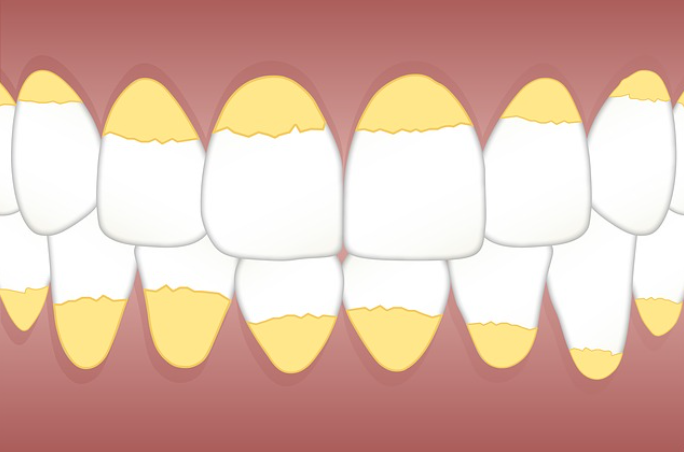You’re brushing your teeth as part of your normal morning routine and suddenly notice that there is blood in the bathroom sink when you spit! What’s going on? Did you just get carried away and brush too vigorously, or is there something more sinister going on?
Is it Gingivitis?
Gingivitis is the earliest stage of periodontal disease (gum disease). According to the Center for Disease Control (CDC) over 47% of adults over 30 have some form of periodontal disease. If caught and treated early, your dentist can reverse the effects of gingivitis and prevent it from advancing to periodontal disease.
Unfortunately, symptoms of gingivitis may not appear until it is in its advanced stages. Symptoms to watch for include:
- Tender, red, swollen gums or pain in your mouth.
- Bleeding when flossing or eating hard food.
- Receding gums (pulling away from the tooth and making teeth appear longer).
- Loose teeth.
- Pus between teeth and gums.
- Chronic bad breath.
- Mouth sores.
- A change in the way your teeth fit together when you bite.
- A change in the way dentures or other appliances fit in your mouth.
Causes
Periodontal disease is caused by bacteria in the mouth that infects the tissue around the tooth and causes inflammation in the tissue. When that bacteria stays too long, it becomes plaque which hardens to tartar (calculus). Calculus then begins to build up and spread below the gum line. This makes teeth harder to clean. At this point, only a dental professional can remove the tartar and stop the progression of periodontal disease.
Take Action Right Away
According to the American Dental Association, gingivitis can be prevented with good oral hygiene and regular dental cleanings. However, if you experience symptoms, it won’t just go away on its own without treatment. It’s important to see your dentist at the first sign of gingivitis and follow up with their recommendations for home care. If left untreated, gingivitis can lead to periodontal disease and eventually result in tooth and bone loss.
Your dentist may recommend deep cleaning to get rid of the buildup of plaque and calculus that causes periodontal disease. This treatment may require anesthesia as well as over the counter pain relievers such as Tylenol and/or Ibuprofen before and after the procedure. You will also be prescribed an antibiotic to help combat the infection. You may experience some mild discomfort for the first few days after treatment, but this should go away after a couple of days. If it doesn’t, or if sores or boils develop, call Carolina Family Dentistry right away.





